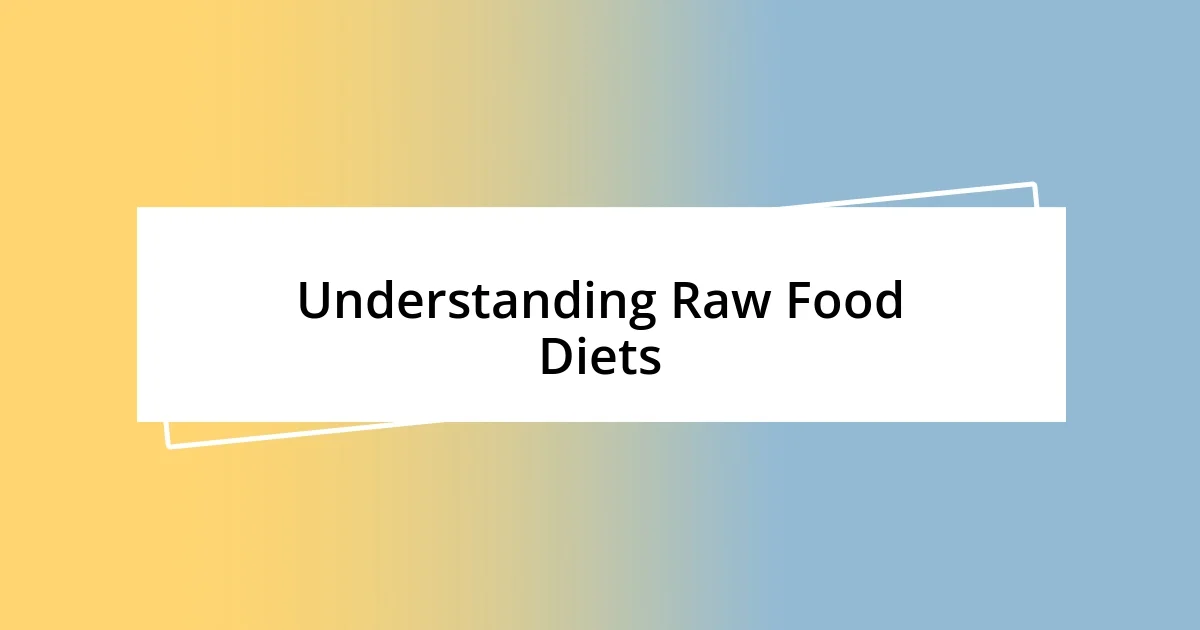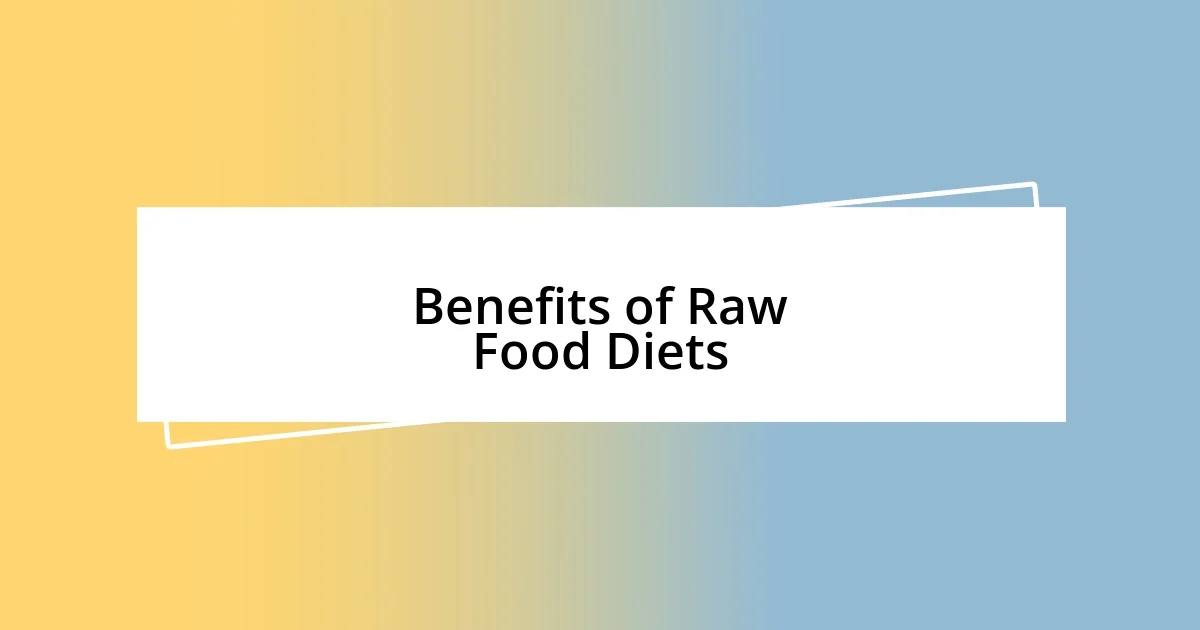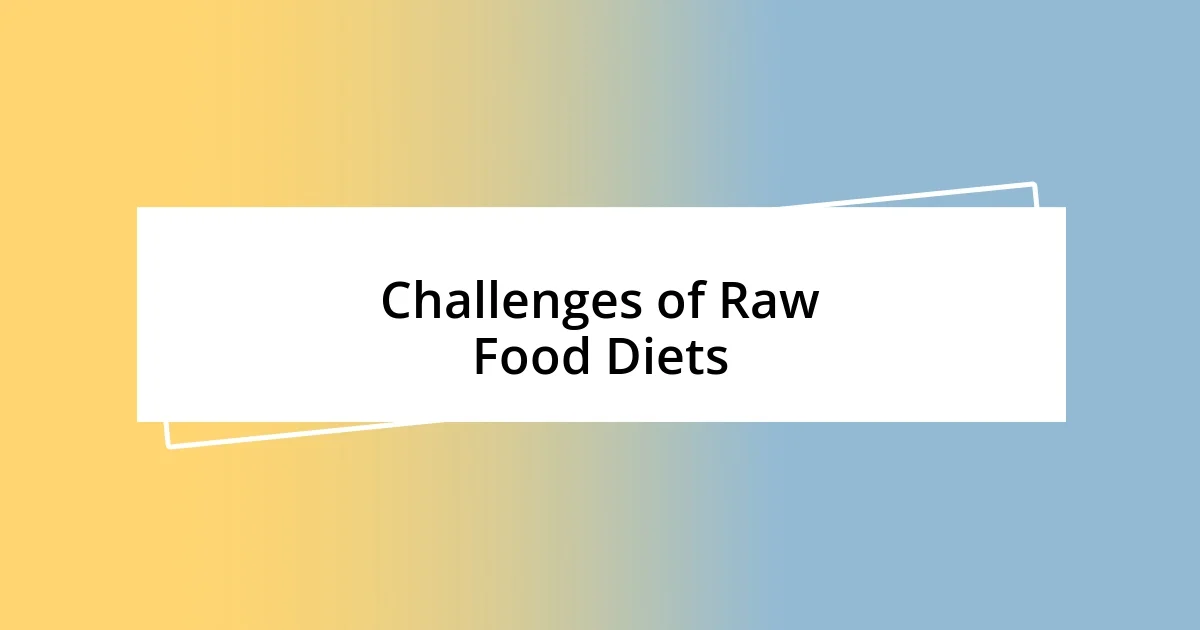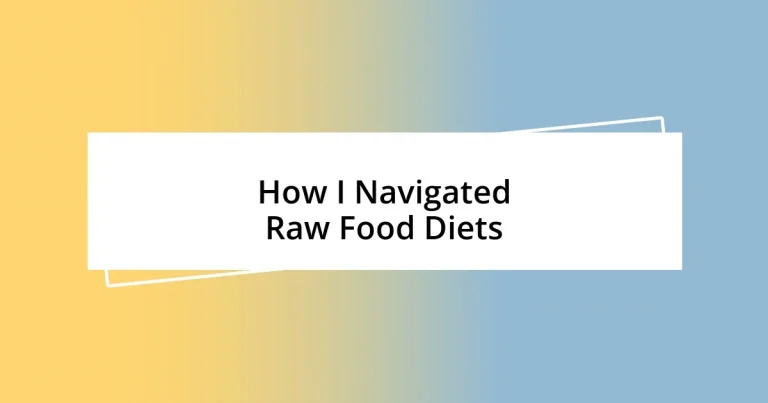Key takeaways:
- Raw food diets focus on unprocessed, uncooked foods, increasing nutrient retention and offering diverse meal options.
- Benefits include improved digestion, increased energy, better hydration, enhanced skin health, and a sustainable approach to weight loss.
- Challenges involve finding satisfying snacks, navigating social situations, and managing the higher cost of fresh produce.

Understanding Raw Food Diets
Raw food diets are built around the principle of consuming unprocessed and uncooked foods, which proponents believe preserves nutrients and enzymes that can be destroyed by heating. I remember the first time I tried a raw food meal; it was a colorful salad bursting with flavor. The freshness was unlike anything I had experienced before, and it made me question conventional beliefs about cooking and nutrition.
In my experience, these diets often include fruits, vegetables, nuts, seeds, and sprouted grains. I once joined a local raw food potluck, and I was amazed by the creativity of the dishes—raw lasagna, avocado chocolate mousse, and even zucchini noodles! Who would have thought that food could be so diverse while still adhering to such a strict diet?
While raw food diets can be incredibly nutritious, they can also lead to challenges, such as finding adequate protein and addressing cravings for cooked food. Think about it: how often do you turn to comfort foods like casseroles or baked goods? I grappled with it, but over time, I discovered how to create satisfying alternatives that honored my desire for warmth and comfort while still embracing raw ingredients.

Benefits of Raw Food Diets
The benefits of a raw food diet are quite compelling, and I’ve personally experienced many of them firsthand. One of the most noticeable changes for me was an increase in energy levels. Initially, I wasn’t sure what to expect, but I quickly noticed that incorporating fresh fruits and vegetables made me feel revitalized. I no longer experienced those afternoon slumps.
Here’s a concise list highlighting the benefits I’ve observed:
- Improved digestion, thanks to the high fiber content of raw foods.
- Enhanced skin health, which seemed to glow after weeks of eating raw meals.
- Better hydration from water-rich foods, leaving me feeling refreshed.
- Weight loss that felt sustainable, as I was more mindful of what I consumed.
- A greater connection to my food and where it comes from, adding a sense of purpose to my meals.
In retrospect, I can confidently say that these benefits extended beyond nutrition; they transformed my relationship with food and my body. The experience has been eye-opening!

Challenges of Raw Food Diets
Adopting a raw food diet presented me with unexpected challenges that forced me to re-evaluate my food choices. One issue I faced was the limited variety of snacks available. I missed the crunch of roasted nuts or the richness of baked goods, which often seemed like the ultimate comfort foods. Have you ever been in that moment where all you want is that warm, gooey cookie? Finding satisfying substitutes was a journey of trial and error.
Another significant hurdle was social situations. I vividly recall a dinner party where most of the dishes were cooked. I felt a mix of curiosity and anxiety as I navigated the table, attempting to piece together a meal from the salad and fruit platter. It made me wonder, how do you balance your new eating habits with the expectations of others? In each gathering, I learned to advocate for myself, ensuring my choices were respected while also finding joy in sharing my new culinary adventures.
Of course, there’s also the financial aspect to consider. Fresh produce can be pricy, particularly if you’re opting for organic options. There were moments when I had to budget creatively, swapping out my go-to smoothie ingredients for seasonal fruits. Have you ever felt the pinch when trying to eat healthily? It encouraged me to become more resourceful, discovering local farmers’ markets and finding ways to stretch my budget without compromising on nutrition.














